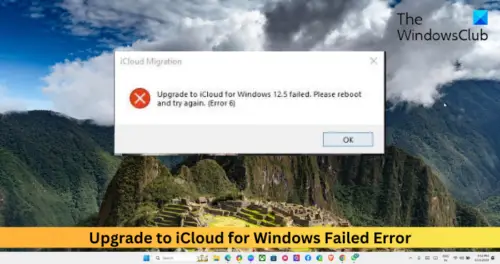Rethinking Middle Management: Their Vital Contribution To Modern Organizations

Table of Contents
In today's dynamic business environment, the role of middle management is often overlooked or even downplayed. However, a fresh perspective is needed. This article will explore the vital contribution of middle managers to modern organizations, demonstrating their crucial role in bridging the gap between leadership and frontline employees and driving overall success. We’ll examine how effective middle management is essential for improved organizational effectiveness and achieving strategic goals. Ignoring the potential of your middle management team is a missed opportunity for significant growth and improved performance.
The Evolving Role of Middle Management
The traditional image of middle management as a bureaucratic bottleneck is outdated and inaccurate. Modern organizations need to rethink this perception and recognize the evolved, crucial role of middle managers.
From Gatekeepers to Facilitators
The modern middle manager is no longer simply a gatekeeper of information; they are facilitators, empowering their teams and removing obstacles to success. This shift in mindset is crucial for organizational agility and responsiveness.
- Fostering collaboration and communication: Effective middle managers break down silos between departments, encouraging cross-functional collaboration and seamless information flow. This improves communication, reduces conflicts, and fosters a more cohesive work environment.
- Removing bureaucratic hurdles and streamlining processes: They identify and eliminate inefficient processes, streamlining workflows and ensuring that teams have the resources they need to succeed. This can lead to significant gains in productivity and efficiency.
- Championing employee initiatives and promoting innovation: Middle managers act as advocates for their teams, supporting new ideas and fostering a culture of innovation. This empowers employees and drives creativity within the organization.
- Acting as a bridge between senior leadership and frontline employees: They translate strategic goals into actionable plans for their teams, ensuring alignment and effective execution. Simultaneously, they provide vital feedback from the frontline to senior leadership, ensuring that strategic decisions are grounded in reality.
Adapting to Change and Uncertainty
Middle managers are on the front lines of change implementation, requiring significant adaptability and resilience. In today's rapidly changing business landscape, this adaptability is more critical than ever.
- Effectively communicating organizational changes to their teams: They ensure transparency and clear communication during times of transition, minimizing confusion and anxiety amongst employees.
- Adapting strategies and processes based on feedback and market changes: They are agile and responsive to change, adapting their strategies and processes to meet evolving needs and market demands.
- Building a culture of flexibility and continuous improvement: They promote a culture of learning and adaptation, encouraging their teams to embrace change and continuously improve their processes.
- Demonstrating resilience in the face of unforeseen challenges: They lead by example, exhibiting resilience and determination during difficult times, inspiring their teams to overcome obstacles.
The Impact of Effective Middle Management on Key Metrics
The impact of effective middle management extends far beyond individual team performance; it directly influences key organizational metrics.
Improved Employee Engagement and Retention
Supportive and effective middle managers are crucial for fostering a positive work environment and boosting employee engagement. This directly translates into higher retention rates and reduced recruitment costs.
- Providing regular feedback and recognition: Recognizing and appreciating employees' contributions fosters a sense of value and belonging.
- Creating a positive and inclusive work environment: A positive and inclusive work environment boosts morale and improves collaboration.
- Investing in the professional development of their team members: Investing in employee growth shows commitment to their career advancement and increases job satisfaction.
- Addressing employee concerns and fostering open communication: Open communication builds trust and enables proactive problem-solving.
Enhanced Team Performance and Productivity
Effective middle management directly correlates with increased team performance and productivity. This impact is measurable and significant.
- Setting clear goals and expectations: Clear goals and expectations provide direction and motivation for teams.
- Providing the necessary resources and support: Ensuring teams have the resources they need promotes efficiency and reduces frustration.
- Monitoring progress and providing constructive feedback: Regular monitoring and constructive feedback enable course correction and continuous improvement.
- Celebrating successes and learning from failures: A culture of learning from both successes and failures fosters continuous growth and improvement.
Successful Strategic Execution
Middle managers are the linchpin connecting high-level strategic goals with on-the-ground execution. Their effectiveness is directly tied to the successful achievement of organizational objectives.
- Aligning team objectives with overall organizational strategy: Ensuring alignment between team objectives and overall strategy ensures cohesive efforts towards shared goals.
- Developing and implementing effective action plans: Translating strategic goals into actionable plans ensures clear direction and efficient execution.
- Monitoring progress and adjusting strategies as needed: Regular monitoring and adjustments ensure that plans remain relevant and effective.
- Ensuring accountability and achieving key performance indicators (KPIs): Accountability mechanisms ensure that teams stay focused and achieve their targets.
Developing High-Performing Middle Managers
Investing in the development of middle managers is not an expense; it’s a strategic investment in the future of your organization.
Investing in Training and Development
Comprehensive training programs equip middle managers with the essential skills to succeed in their evolved roles.
- Leadership training focusing on coaching, mentoring, and delegation: Developing leadership skills enables them to guide and support their teams effectively.
- Communication and conflict resolution skills development: Strong communication skills are vital for effective collaboration and conflict resolution.
- Strategic thinking and problem-solving workshops: Developing strategic thinking empowers them to make sound decisions and solve complex problems.
- Training on new technologies and industry best practices: Staying current with technology and industry best practices ensures their effectiveness and relevance.
Creating Opportunities for Growth and Advancement
Providing opportunities for career progression is vital for retaining high-performing middle managers and fostering loyalty.
- Providing opportunities for leadership roles on cross-functional projects: Exposure to various roles and projects enhances their skills and experience.
- Offering mentorship and sponsorship programs: Mentorship and sponsorship provide guidance and support for career advancement.
- Creating clear career paths and succession plans: Clear pathways create a sense of direction and motivation.
- Providing opportunities for advanced education and professional certifications: Investing in their professional development shows commitment and enhances their expertise.
Conclusion
Rethinking middle management requires recognizing their critical role in organizational success. By fostering a supportive environment, providing necessary training, and empowering middle managers to act as facilitators, organizations can unlock their full potential. Effective middle management isn't just beneficial; it’s essential for driving employee engagement, boosting team performance, and ensuring the successful execution of strategic goals. Investing in and developing your middle management team is an investment in the future of your organization. Start rethinking your approach to middle management today and see the positive impact on your overall organizational effectiveness. Invest in your middle managers, and watch your organization thrive.

Featured Posts
-
 Lowrys Encouraging Words For Mc Ilroy Post Masters Highlight Their Strong Bond
May 11, 2025
Lowrys Encouraging Words For Mc Ilroy Post Masters Highlight Their Strong Bond
May 11, 2025 -
 Boris And Carrie Johnsons Easter Message A Rare Glimpse Of Their Son
May 11, 2025
Boris And Carrie Johnsons Easter Message A Rare Glimpse Of Their Son
May 11, 2025 -
 Whoops Failed Upgrade Promises A Growing User Revolt
May 11, 2025
Whoops Failed Upgrade Promises A Growing User Revolt
May 11, 2025 -
 Alex Palou Dominates Qualifying Leaving Andretti Behind At Indianapolis
May 11, 2025
Alex Palou Dominates Qualifying Leaving Andretti Behind At Indianapolis
May 11, 2025 -
 Crazy Rich Asians A New Era Of Production With Jon M Chu On Max
May 11, 2025
Crazy Rich Asians A New Era Of Production With Jon M Chu On Max
May 11, 2025
